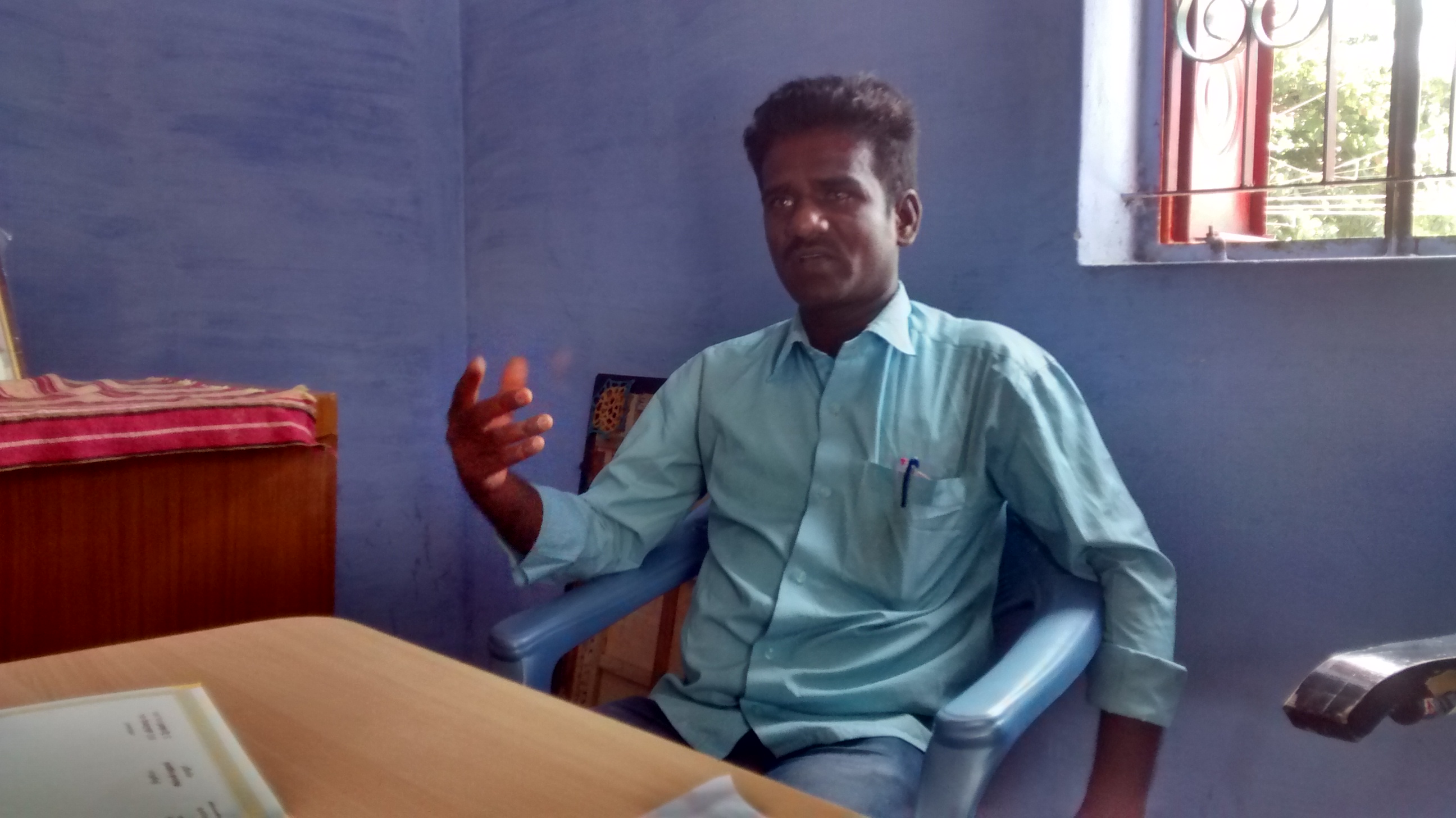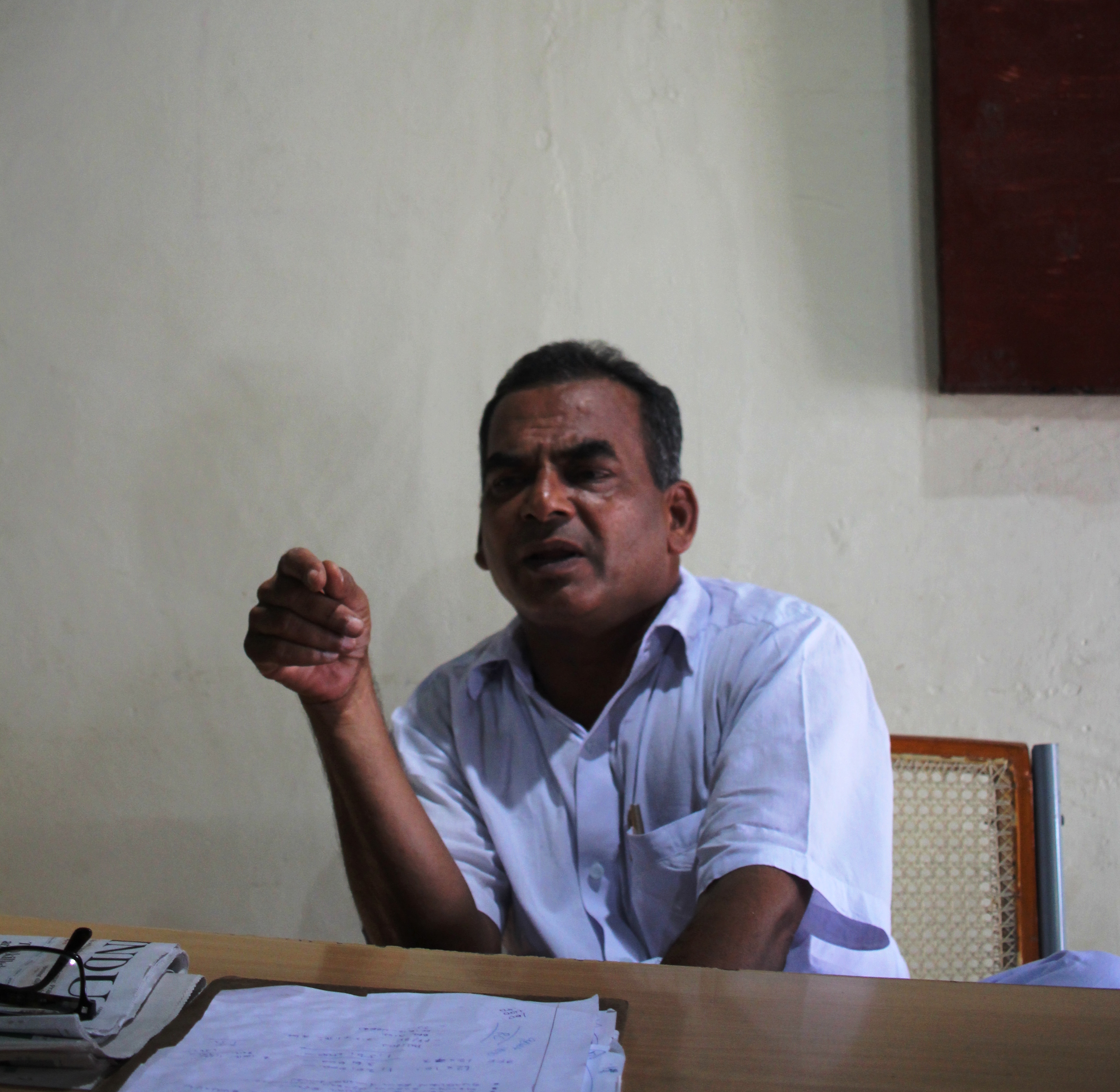Schedule Tribe across Tamil Nadu except for one district: The curious case of Erode Malayalis

By Amit Kumar, Twocircles.net
Erode: Some refer to it as a bureaucratic mistake, while others blame it to caste politics, yet for 30,000 people of the Malayali tribe (not to be confused with Malayalam-speaking people) living in Kadambur and Bargur Hills in Tamil Nadu, it is a simple question that is yet to be answered: why us?[caption id="attachment_409444" align="aligncenter" width="2592"] KP Sasi, a Malayali, believes this oversight has cost their community dearly and denied them a chance to rise higher in the social ladder[/caption]
KP Sasi, a Malayali, believes this oversight has cost their community dearly and denied them a chance to rise higher in the social ladder[/caption]
The Malayali tribe, the largest in Tamil Nadu, is spread across Dharmapuri, North Arcot, Pudukottai, Salem, South Arcot and Tiruchirapalli districts. The district of Erode too has a substantial population of Malayali tribe, except that unlike the rest of the state, here they are not issued ST community certificates, and are instead registered as Other Castes. The Malayalee community members are predominantly farmers in Erode district and more in number in Bargur area of Anthiyur taluk and Kadambur area of Sathy taluk, and their grievance is one that goes to the 50s when their community was excluded from the list of STs in the state, a mistake that has remained ever since.
And this discrimination has not gone unnoticed in the eyes of the Malayalis of Erode, who blame this on a variety of factors. One, according to locals, is because their community is also referred to as Malayali Gounders, which often creates an impression that they are connected to Gounders, who are categorised as Backward Castes. “Often, people tell us that we shouldn’t protest or speak in favour of ST status because we are being given ‘respect’ by being referred as Gounders. Some Malayalis also refer to themselves as Gounders, but the point remains that we are ST, just like our community in the rest of the state, and we deserve ST status,” says Ramasamy K, a 53-year-old resident of Kadambur and a Malayali.
The confusion over name apart, one thing which almost all Malayalis agree upon that the lack of affirmative action on the part of the government has affected them severely. KP Sasi, a 30-year-old social worker in Kadambur met us near the local bus stand. Sasi had completed his graduation from Bharathiyar University and said that lack of ST status was a major factor in pursuing further education. “In Tamil Nadu, students belonging to SC, ST, MBC, OBC and BC categories all benefit from an affirmative action like reservation, hostels, lower fees, relaxed age limits but since we are categorised as Other Caste, we cannot avail any of these facilities.” He further added that this had pushed the Malayalis further from any social improvements. “We were traditionally into agriculture, and that remains the case. Else, we work as labourers. But because we are denied what is rightfully ours, we are unable to move much on the social ladder,” he said.
The Erode Malayalis also point out that their demand for inclusion and government recommendations favouring the same have been going on for the past 52 years. As early as 1965, The Lokur Committee had recommended substitution of Malayali by Malayali Gounder along with the removal of area restriction with respect to the ST status. Yet, nothing seems to have been done since except empty promises, say the Malayalis.
In 2015, an anthropological research was conducted to justify their inclusion in the ST community list. At that time, the Malayalis were told that this process would take three years and they have not given up hope. “Three generations of our people have already struggled, so there is little else to do but wait,” added Sasi.
Lack of ST status dents claims under Forest Rights Act
The Malayalis of Erode added that even if they relocated to districts where they are categorised as STs, it is of no help. “Say, if I were to marry a girl from Salem who is also Malayali, I still remain categorised as Other Caste while she loses her ST status. So, there is no escaping this vicious cycle,” said Ramasamy.
[caption id="attachment_409447" align="aligncenter" width="3456"] Mohankumar-from-CPI-believes-that-the-state-parties-have-not-shown-much-interest-in-resolving-this-decades-old-issue.[/caption]
Mohankumar-from-CPI-believes-that-the-state-parties-have-not-shown-much-interest-in-resolving-this-decades-old-issue.[/caption]
Mohankumar, a member of the Communist Party of India, says that due to their OC status, Malayalis are also finding it difficult to claim Forest Rights Act. “For a person from ST to claim rights under FRA, he/she must be a Scheduled Tribe in the area where the right is claimed and primarily resided in forest or forests land prior to 13-12-2005 and depend on the forest or forests land for bonafide livelihood needs. However, for non-ST forest dwellers, they must have proof of residence in the same village for the past 75 years (three generations) and this is where the problem arises. A huge number of Malayalis living in this area will not be able to claim rights under FRA since they are unlikely to have the relevant documents and this is another bone of contention for the community,” he said.
Mohan added that while most of the Malayalis still depended primarily on agriculture, minor forest produce was also part of their sustenance and due to the lack of FRA implementation in the area, they had been getting into a tussle with the Forest Department in the region. “We were told that the Ministry of Tribal Affairs is looking into the issue. But everyone seems to be looking into the issue, and doing nothing about it.”
While Malayalis of Erode remain hopeful that one day, this anomaly will be redressed, they are unlikely to forget the decades they have spent waiting and the opportunities that eluded them due to a clerical mistake.
